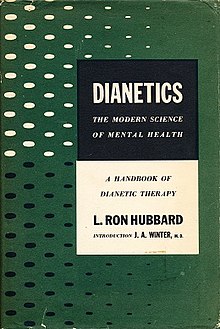The Dianetics Statements
The Dianetics Statements
Blog Article
Not known Incorrect Statements About Dianetics
Table of ContentsDianetics Can Be Fun For AnyoneDianetics Can Be Fun For Everyone5 Easy Facts About Dianetics ShownSome Known Details About Dianetics
I couldn't ever before not want to obtain anything that enters your mind for you- if it was otherwise, I would not be resting below with you, doing this. I not just might never have a trouble, or not intend to listen to something that enters your mind for you, but I'm completely excited to know every idea, every thought, every photo or feeling that arises or materializes for you- do not ever before think otherwise, and if somehow you do, please simply allow me know! Sometimes, you might have an idea, and picture, idea or incident pop up that does not appear to respond to the concern, or associate with it, however nonetheless, always do inform me about it, and as we continue, the importance will certainly arise for you.This is intrinsic in the basis of handling, and the subject of this conversation: the fundamental functions of the therapist and the customer: The basic function of the therapist is, in contrast to "common training", not to manage, which means to implement and/or hinder, but to rather function from the basis of EMPOWERING THE CLIENT.

A Biased View of Dianetics
John Mcmasters shared this standard truth splendidly well in one of his lectures on Power handling, wherein he describes just how he was asked what this "special flair" was that he had for giving such terrific sessions; he needed to think of that for a moment, and spotted that it was what he had not been doing, along with what he was doing: he wasn't examining, evaluating, computing, or as a matter of fact, generating any thoughts, not to mention spoken expressions, after providing the command and while awaiting the computer to complete their response to their fulfillment; he was, simply and just, existing with the computer, and entirely interested.
The role of the therapist, demonstrated; that was his "special knack". I have had my own experience which instructed me this well, very early in the video game. In 1982, having lately finished my training and teaching fellowship on New Age Dianetics, I was running this on a COMPUTER, and there was a factor in the session where (being a bit damp behind the ears not yet having many hours under my belt as a professional auditor) the computer appeared to be "taking also long" to reveal anything vocally after I offered him a command.
This key became one of the most beneficial contribution that John ever before made to the topic of therapy or auditing (Dianetics). In my humble viewpoint, it is the biggest contribution that anyone has ever made to these subjectsthe application is entirely non-judgemental, non-evaluative, and devoid of any suggestion, suggestions or opinion.no preconditioned schedule for people, or 'levels' that they should do
In Scientology we prided ourselves on not evaluating for people. All that truly meant was that the auditor did not VERBALLY assess for the PC in session.
Dianetics Fundamentals Explained

Anybody that had ever seen John audit might not assist however see an unique quality in his bookkeeping."The client's basic browse around this web-site role is to be there with the purpose of moving in the instructions of their spiritual objectives, and to easily and fully share and experience whatever materializes for them in responding to the concerns and performing the instructions in the processing.
This is something to procedure as required. However also, people often have prior experience and/or indoctrination in auditing/processing which, somehow, and to some extent, in fact deceives them into attitudes, concepts and habits patterns that avoid the full awareness of these roles, therefore they will tend to inhibit the expressing of what enters your mind, as in the instances provided over. * The very first, and maybe leading instances of mis-indoctrination resulting in less than totally smooth and reliable sessions, can be discovered in particular facets of the training routines, or "TR's":"TR's" are commonly an individual's very first, or at the very least early, experience in Scientology, and while I will take place to explain what I see as the problems in idea and method, however, have a tendency to be considerably therapeutic, done as they are offered (Hubbard urges that "TR's are not processing, they are educating", however factually, they are both handling AND training)
Alan Walter made comparable monitorings, and improved these with his "Presence Processes". check my reference There is no "flunking", and no rejection of the fact of this being handling. The focus, as it ought to be, gets on experiencing the other individual's presence. All the symptoms which obtain a "fail" in doing "TR-0" are simply the being's initiatives to withstand the other person's presence, and as opposed to being bothered and badgered with "Flunk", which enforces "failing!" on the being, one merely needs to be urged to "stick their feet in the water a little deeper", to increasingly rehabilitate their capability and desire to completely share and experience "being right here", or "presence", with others.
Some Of Dianetics

Report this page